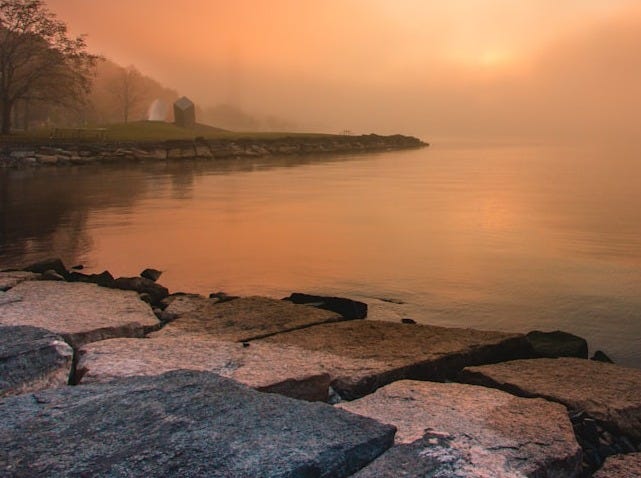Why Don't I Wonder?
How To Cultivate Curiosity Again.
A few weeks ago, I was asked to write a guest article regarding something I wondered about. My first thought was, “I don’t.” When I was growing up, wonder and curiosity were not allowed. The four basic house rules were:
don’t ask questions
don’t talk back
children were to be seen and not heard
do as you’re told
People can’t be curious or wonder when they can’t ask questions. That door was tightly closed for my brother and I.
Experts explain that curiosity is a quest to bridge the gap between what we know and what we don’t know. They also say that wonder is the ability to move between knowing and not knowing with attentive, focused awareness and without judgment.
Those early house rules affected me for years. Only recently have I become comfortable asking questions and not doing what “they” said to do without thinking it through for mysef.
So why not open the door to wondering? Am I too late?
I found three definitions when I looked up the word in the dictionary.
Thinking or speculating - wondering about the solar system’s origin.
Filled with admiration, amazement, or awe - wondering at someone’s composure during a crisis.
Doubting - wondering if I could write the article.
Several factors impact childhood wonder and curiosity - factors like increased exposure to technology and structured activities, social pressures to conform, a lack of time spent in nature, discouragement from adults who may dismiss questions or limit exploration, and a shift in focus towards achievement and results rather than the joy of discovery.
When children start school, their spontaneous questions seem to slow down, and many lose their curiosity in adulthood. They’re taught to assume it’s better not to ask questions. That was certainly the lesson I learned.
Can I revive a sense of wonder? Articles on the Internet say yes.
One site said that to revive a sense of wonder; people can seek new experiences, perspectives, and details in everyday life: explore new places, slow down to appreciate the small things, look at familiar things from a different angle, ask questions, and learn about new topics.
Another site suggested listening to others, trying a new hobby, visiting new places, and meeting people with different ideas from one’s own.
Experts say older adults can positively impact emotional well-being, foster a deeper connection to the outer world, and counteract feelings of isolation or decline associated with aging by going on “awe walks.” This involves actively noticing and appreciating the beauty and complexity of the surroundings.
So, it’s not too late to wonder; it might even help people age well. Writing that article opened a door for me - now it’s part of my thinking.
I’d love it if you could share the Aging Well Newsletter with others. I want to share the lessons I’ve learned through my years of life and caregiving with as many people as possible. More than anything, I want to continue expanding our community of readers.
So please forward this email to a friend and invite them to join us. They can subscribe here:
Thank you so much for being part of the Aging Well community.
If you want to contribute to my work, consider donating to the Alzheimer’s Association. This link takes you to their website. The choice is yours.
Janice Walton is a psychologist, widow, mother, grandmother, great-grandmother, and writer. Her book Aging Well: 30 Lessons for Making the Most of Your Later Years is available on Amazon, and she has written articles for Substack.




Writing a recent guest article about wonder opened a door for me.
I find that the closer I get to the ground (the earth), the more opportunities I have to wonder. In five square feet of garden, one finds tiny, tenacious, seedlings, colorful minerals, bird feathers, unknown insects, etc. Of course, once down on our knees, at our age, the challenge becomes getting back up again... sigh.